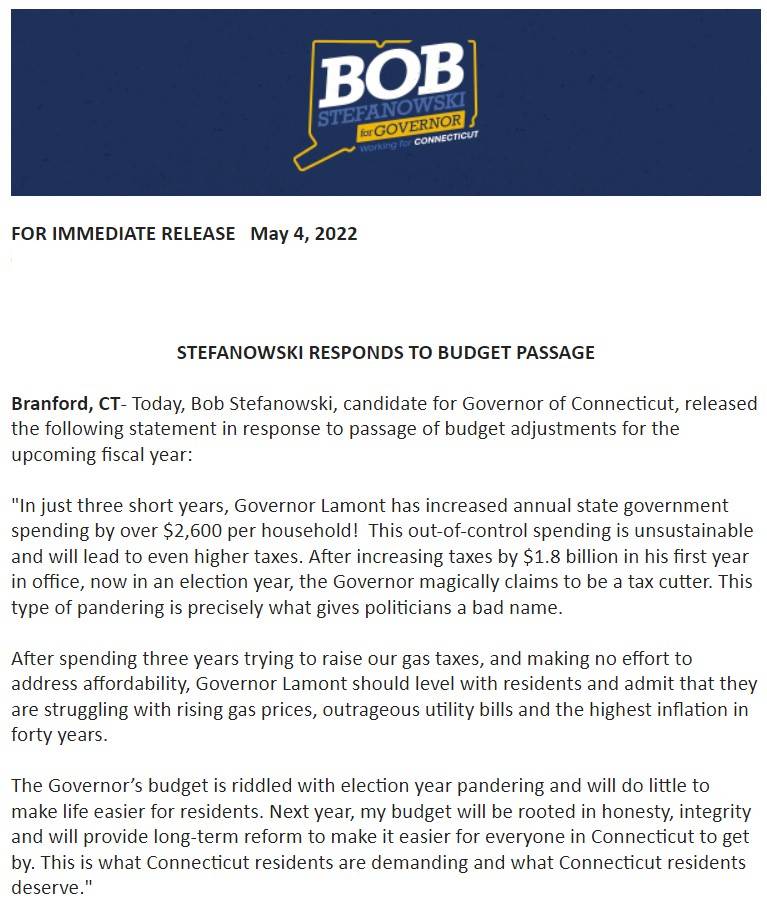(HARTFORD, CT) – Governor Ned Lamont, Lt. Governor Susan Bysiewicz, and Office of Policy and Management Secretary Jeffrey Beckham released the following statements following the final passage by the General Assembly of the FY 2023 Budget:
Governor Lamont said, “This bipartisan budget is the Connecticut difference I spoke of on the opening day of this legislative session. Tonight, the General Assembly voted to give taxpayers their largest tax cut in history, while paying down $3.5 billion in unfunded liabilities, making groundbreaking investments in childcare, crime prevention, environment protection, and caring for our most vulnerable residents. We are transforming Connecticut, making it a place where people and businesses want to grow and set down roots. I want to thank the members of the General Assembly, town leaders, and everyday residents who raised their voices in support of this budget.”
Lt. Governor Bysiewicz said, “The passage of this 2022 budget, a budget containing over a half a billion dollars in tax cuts, is the beginning of providing significant tax relief for Connecticut’s working people, middle class, and retirees. When Governor Lamont and I took office in 2019, our state was facing a $3.7 billion budget deficit. We will be making a historic contribution towards paying down our long-term unfunded pension liabilities, while maintaining one of the strongest rainy day funds in the country. I applaud our state legislature for getting these initiatives over the finish line. We still have work to do, and the Governor and I will continue our work to provide the best quality of life for our Connecticut community.”
Secretary Beckham said, “This historic budget agreement is a credit to the vision of Governor Lamont, the leadership of the General Assembly, and the staff who worked tirelessly behind the scenes to bring this balanced budget to fruition. It is a fiscally sound budget that puts Connecticut in a solid and sustainable financial position, allowing us to confront future economic disruptions without substantial impacts on taxpayers.”

